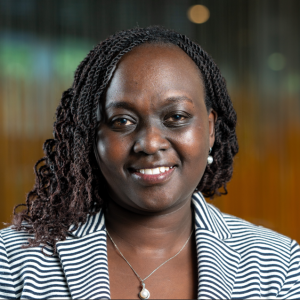
About Me
I am an assistant professor with the Department of Global Health at the University of Washington. Previously, I served as an Assistant Director of Medical Services at the Ministry of Health in Kenya where I led the HIV prevention team, the HIV testing services and Pre-Exposure Prophylaxis (PrEP) program, and the adolescents and young people program in the Ministry of Health-HIV program. I am a medical doctor and an implementation scientist who received my Masters in Global Health and a PhD in Global Health-Implementation Science from the University of Washington.
My research spans designing, optimizing, implementing, disseminating and bringing to scale evidence-based health interventions. My work centers on the direct translation of research results into policy and practice in HIV Prevention, Care and Treatment and Non-communicable diseases in low- and middle-income countries. Prior to joining the University of Washington as faculty, I led the roll out of pre-exposure prophylaxis, HIV self-testing and assisted partner services in Kenya successfully translating these research efforts into policy and practice. These studies and policy work have impacted national and international guidelines and resulted in translation of research into policy and practice.
I am currently an implementation science co-lead for the American Heart Association funded RURAL-PROCARE grant that supports five implementation science projects in the US focused on improving cardiovascular health in rural America. In addition, I am currently engaged in several implementation science research projects in Kenya. I am a principal investigator in a CFAR award to evaluate the delivery, cost and budget impact of scaling up assisted partner services among people who inject drugs in Kenya. I am also a principal investigator for a NIH-funded supplement to assess frailty and osteoporosis among women aging with HIV in Kenya and to develop culturally appropriate tools for geriatric assessment in this population.